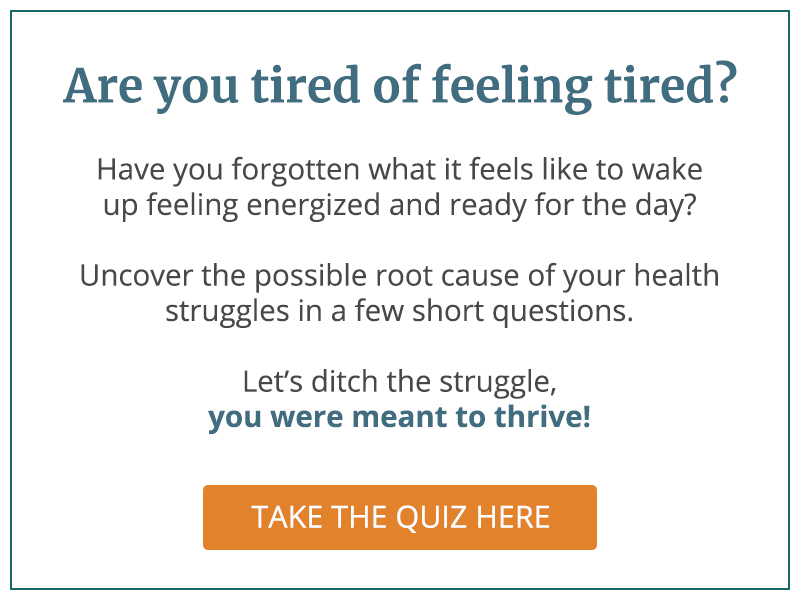Your to-do list seems to get longer and longer. The presentation is due on Monday, the bake sale is on Tuesday, and the in-laws are coming to dinner Wednesday night. Lately, you feel frazzled.
Do you experience:
- Frequent headaches?
- Fatigue or general tiredness?
- Discomfort in chest or increased heart rate?
- Nausea?
- Stomach pain?
- Diarrhea?
- Constipation?
- Trouble sleeping?
- Regular colds and illness?
If you experience one or more of these symptoms, you may be living with daily stress. But even if you’ve been struggling for a long time, there’s no need for you to hover on the edge of burnout. Here are four stress relief activities to help you. Learning how to reduce stress and tension is an important tool for better health.
#1 Move naturally
Staying active is important for your body, but it’s just as important for your mind. Although western medicine teaches us to think of the body and mind as separate, in truth, everything is connected. For example, 95% of your body’s serotonin is made in your gut! And serotonin is a neurotransmitter made by your body, that I like to call your “happy currency”as it contributes to feelings of well-being and happiness. By tending to your body and embracing exercise, you can improve your mood and bodily responses to stress – exercise increases your body’s production of serotonin.
Your hypothalamic-pituitary-adrenal axis is made up of the hypothalamus and pituitary glands of the brain, and your adrenal glands. The stress response is very primal – when your brain detects a threat (whether it’s that your boss suddenly wants a word in private, or you’ve been cut off in traffic) your HPA triggers a release of adrenaline and cortisol: hormones that provoke the stress responses listed above. Adrenaline drives your fight-or-flight response, while cortisol is more subtle – telling your body to ditch the processes not essential to dealing with danger, such as immune system function, and sleep regulation.
Your anxiety levels can be reduced through exercise – keeping moving can influence your hypothalamic-pituitary-adrenal (HPA) axis into modulating your stress response.
When I recommend exercise, I’m not necessarily suggesting you join a gym and work out daily. Moving naturally means that we move with purpose, and move throughout the day. Try daily 30 minute walks, yoga, getting up from your desk and stretching every so often, simple weight training exercises you can do at home – just keep moving.
#2 Meditate Mindfully
Mindfulness has become a buzzword in the last few years, but I’m pleased to say the underlying method really works wonders, and remains timeless. Mindfulness meditation is all about sitting in the moment, and letting thoughts and feelings come and go, without getting attached.
Commitment to meditating in this way can help ease symptoms of stress and anxiety by:
- Making changes to your amygdala – an almond shaped part of the brain responsible for processing emotion.
- Improving the connection between your amygdala and subgenual anterior cingulate cortex (part of your prefrontal cortex). That’s a mouthful, but your subgenual anterior cingulate (SAC) is crucial to your ability to process and cope with emotions – think of your amygdala as a primal, reactive toddler, and the SAC as a calmer, older relative happy to work through the emotion. Strengthening this relationship is crucial to being able to manage stress better.
- Thickens your prefrontal cortex overall, improving cognitive function and stress response.
Meditation has been around for thousands of years, but the science sure does back it up! If you’re looking for some simple ways to meditate, check out my free book Built To Thrive for some exercises and pointers. If you’re looking for a simple stress management technique, this is one of the best.
#3 Make Meaningful Connections
We’ve all done it. Kept scrolling on the social networks long after we should have gone to bed. Or maybe you’re killing time while your tires are being changed, but you wind up frustrated at the current news, or fed up at your old school friend for writing a long rant again. Our over reliance on technology to keep us connected – and to keep us occupied – can be actively damaging, and increase our stress levels if we’re not careful. One study shows that Facebook use after a stressful incident can slow stress recovery – it’s not actually that relaxing!
So how about you take breaks from the news and your social media feed? Your feelings of wellbeing are likely to improve.
I’m not saying for one minute that you should delete your accounts and throw away your phone – but taking a digital detox for a day or two, or limiting certain apps for 15 minutes a day can be highly beneficial. These websites and apps are designed to be addictive, to make you think “one more scroll won’t do any harm,” but it can erode your normal coping mechanisms, and put you in more of a “reactive” frame of mind.
Instead, take a more active role in your community, by volunteering, or taking a more active role at your place of worship or local community center. By giving, you also receive – low social support has been linked with heightened stress levels, and connecting and maintaining relationships with the people around you can help calm that response.
#4 Practice Gratitude
On particularly bad and stressful days it can be difficult to stay positive. As I’ve explained above, stress can alter parts of your brain, making you more ready to respond to situations with a stress response – it’s a vicious circle! Because of this, it’s all too easy to catastrophize, overgeneralize, or minimize the positives (all thinking errors tackled in CBT). Practicing gratitude is one way to challenge negative thinking, but it also gives you the space and time to reflect on your day, and what you value most.
All you have to do is write three sentences a day – simple, right?
Each sentence starts “I am grateful…”
For example:
I am grateful I got to eat breakfast with my children.
I am grateful that I was able to go for a walk at lunchtime and enjoy the spring flowers.
I am grateful for the support of my partner after a difficult day.
Much like the meditation in Step 2, practicing gratitude forces you to slow down, take a minute to recenter yourself, and appreciate the things you hold most dear. Making a habit of this step reduces stress and helps you manage your emotions.
Putting these four steps into practice can counteract your everyday stress dramatically, and bring back a sense of balance to your daily life. I believe that by adjusting your mindset, moving more, and making better interpersonal connections, you can make a start on living your best life.
If you’re worried that stress is contributing to your poor health, get your free copy of Dr. Shelly Sethi’s book Built To Thrive to learn more about how you can aid your body in healing itself. If you’re looking for a functional medicine doctor or integrative medicine doctor in the Austin Texas area, call 512-215-9984 or fill out our contact form.



